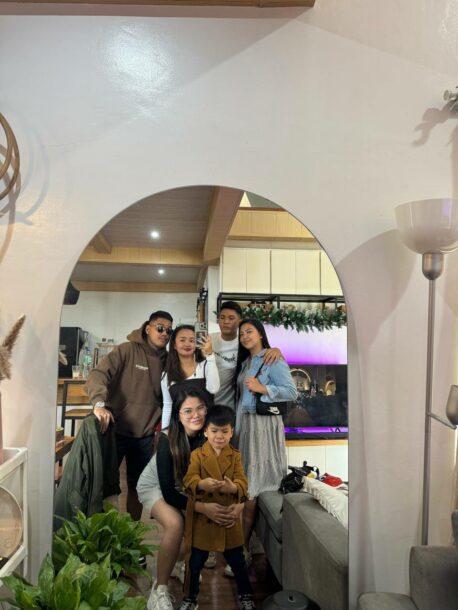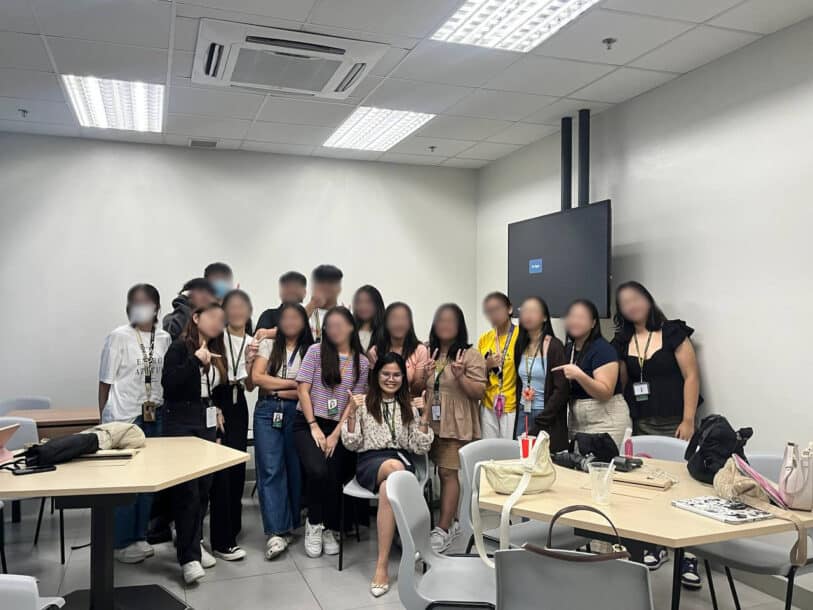WHEN love calls, how far will we go? Is there a limit we will not cross, or does love blur those lines, prompting us to take risks and make sacrifices that, under normal circumstances, would appear unimaginable?
It is safe to assume that most of us have reflected on these thoughts with a positive intention: to give our all. We will never say no to anything, whether for our partners, friends, or family.
Especially for Filipinos, who regard family as the source of their deepest affection. Our love for our relatives can influence the life-altering decisions and endless sacrifices we make, which may impact our identities.
However, what happens when the stakes are high, love demands more than we expect, or a loved one’s well-being is at stake? The question remains: what would you do for your family out of love?
A Love Like No Other
Love for family is a powerful emotion, arguably the most profound and unconditional type of affection. It inspires courage, resilience, and selflessness, but it may also test our beliefs and push us beyond our limits.
However, how do we assess the depth of love, and where do we draw the line when it comes to our families? Is there a limit to how much we should sacrifice for those we love? In actuality, we often forget all of these.
Some Filipino Gen Zs find life difficult since they live in a world where dreams feel both close and far away as they balance their education, career, personal aspirations, and provide for their family’s necessities.
In other words, the “breadwinner” or sole provider for the family. These people are either working while studying or have given up on their goal of graduating given their need to support their families.
While the weight of being a family breadwinner can feel higher than any college assignment or work deadline, many Filipino Gen Zs believe that family comes first, even if it means sacrificing everything.
“Family First” Mentality
Joylene Mindoro, a 25-year-old Teaching Assistant at Far Eastern University in Manila, revealed her breadwinner story with republicasia. The absence of a whole family contributed to her dire situation.
“Being a breadwinner is already a huge responsibility and would usually be seen as a heavy “burden”, but the fact that I am from a broken family, makes it more complicated,” Mindoro said.
“Family is the very core of Filipino culture, but what if your family is not complete? In my situation, the burden of taking care of my loved ones did not stem from a sense of responsibility.”
“It stemmed from a need to keep things whole. When a family breaks, there is this unspoken expectation to step up, to fill the holes, to be the one who keeps things whole,” she went on to explain.

Photo Courtesy: Joylene Mindoro
Mindoro experienced her first taste of adversity at the age of 12, when her parents separated, her grandmother died, and her relationship with her father deteriorated. When she reached college, reality began to sink in.
“When I went to college, I was a scholar, so that lowered the cost, pero dapat magaling ka palagi kasi kung hindi hihinto ka. There should be no margin for error,” Mindoro recalled.
“Tapos dumating ‘yung problema sa tuition ng kapatid ko. That was when I realized I needed to take matters into my own hands. If they would not, then I would! Simula nun, tuluy-tuloy na,“ she added.
For many of us in this generation, being the breadwinner is not a title; it is a responsibility passed down from previous generations, embedded in our culture, and sometimes feels like a duty one cannot avoid.
Deeply Rooted Culture
It’s a perpetual tug-of-war between your personal aspirations and the needs of your family, whether it’s sending money to a relative, caring for siblings, or working two jobs to ensure everyone is cared for.
However, this phenomenon is not new; it has been part of Filipino culture for generations. However, for Generation Z, there is a twist to the already difficult task of being a breadwinner.
They navigate their way in a rapidly changing world in which they are expected to be ambitious, self-sufficient, and successful, while still bearing the burden of family responsibilities.
“The financial struggles today are a whole different game compared to what older generations went through. Dati kasi ‘pag may stable job ka, they would usually be enough. But now? Even with a full-time job, things are still tough,” Mindoro said.

Photo Courtesy: Joylene Mindoro
“That’s why many Gen Zs, including me, feel the pressure to find multiple income sources—side hustles, freelancing, remote work—just to keep up. It’s a lot? Yes! Pero para sa pangarap, gagawin lahat,” she added.
As a breadwinner sister, financial issues were not her only problem. The key issue is to separate herself from her family’s dilemma and serve as a role model for her younger brother in order to break a “generational curse.”
“Hindi lang siya about providing financially—it’s about making up for what was lost, for what’s missing. Kailangan maging all around ka, maging role model,” the BS Psychology graduate said.
“Palagi kong iniisip how to break the generational curse at lagi kong iniiwasan mangyari ‘yung transgenerational trauma and violence,” she went on to explain of what keeps her motivated.
Carry On
With the goal of changing how their boat will sail for the rest of their life, Mindoro stated that her personal choices and aspirations have changed significantly as she has to make personal compromises to meet the needs of her family.
“To be honest, being a breadwinner changed everything,” Mindoro claimed. “Sobrang laki ng impact. Pangarap ko talaga maging doktor, that was the plan. Pero nung narealize ko yung gastos, tinanggap ko na hindi ko yun priority.”
“Tska wala na rin ‘yung number 1 supporter ko, si Mama [grandmother]. ‘Tsaka reality hit me hard, so…so…hard. I reached rock bottom again and again. It became a cycle,” she added.
As the saying goes, we’ll cross the bridge when we get there. For the time being, her primary focus is to pay for her brother’s studies and ensure his timely graduation before pursuing her dream of becoming a doctor.

Photo Courtesy: Joylene Mindoro
Despite setting aside her own aspirations, she never regretted owning the obligations that came with being the big sister. Instead, she looks forward to the day when they may look back on all of their hardships with fulfillment.
“There were days when I felt exhausted, But regret? Never. I have so much love for them. I know na lahat ng ginawa ko and ginagawa ko wasn’t just for my family but for myself, too,” the 25-year-old said.
“Nakikita ko pa lang yung mga kapatid kong getting closer to their dreams, nakangiti na ako agad. It makes everything worth it. Knowing that they won’t have to go through the same struggles I did is enough for me.”
“Sana isang araw, we can all look back at this chapter of our lives na walang pait, walang sakit. Kalmado lang, and with so much gratitude,” she went on.
Don’t Lose Yourself
Being a breadwinner is never simple, especially when paired with additional circumstances that may undermine your capacity to provide and operate best for your family.
For Mindoro, it is important to know how much you can give without losing yourself in the process, as this will help you achieve a balance between honoring your family’s sacrifices and pursuing your own aspirations.
This is where #ModernLove enters the picture. In today’s world, the definition of love is constantly evolving, given that it isn’t only about doing everything for your loved ones—it can also be about how you do it.

Photo Courtesy: Joylene Mindoro
“I think our generation, especially Gen Zs, are more outspoken about setting boundaries and taking a different route. Unlike before, when being a breadwinner meant sacrificing everything,” Mindoro claimed.
“I want to believe that I can contribute to my family without totally sacrificing myself in the process. Maybe because, aware na tayong Gen Zs na pag sila lang lahat yung nasa plano natin, walang mangyayari for our personal dreams.”
“So kailangan pagsabayin, we need to do it simultaneuously, pero ang draining. The challenge is finding that balance, giving back while also ensuring that I don’t end up getting trapped by this responsibility,” she went on to explain.
A Breadwinner’s Advice
Love for family, while noble, must be balanced with self-love and a realization that personal growth and well-being are also crucial. Being a breadwinner does not imply that you must give up everything for those you love.
Make time for yourself, prioritize your mental health, and understand that loving your family does not always have to come at the expense of their own happiness.
“Life is not only about living for our family. It’s also about living for ourselves! Hindi kailanman magiging selfish ang pagconsider sa sarili nating future,” Mindoro advised.
“Save, learn, find ways not to merely survive but to thrive. Because true love for family isn’t quantified by how much of yourself you give up—it’s in how you raise everyone up, including yourself.”
“At higit sa lahat, learn to believe that there will be a day when you no longer have to make a choice between them or you—because one day, you’ll rise together. So take care of yourself, too,” she ended the interview.
So, what would you do for your family out of love? Would you give up everything, or would you find a way to love them while remaining true to yourself? Filipino Gen Z breadwinners are redefining what it means to balance love for family and love for oneself.
The question isn’t simply about sacrificing; it’s about learning to love without emptying yourself. #ModernLove entails more than merely doing things for those you love. It’s also about making sure that in the process, you don’t forget to love yourself, too.
How useful was this post?
Click on a star to rate it!
Average rating 5 / 5. Vote count: 4
No votes so far! Be the first to rate this post.
We are sorry that this post was not useful for you!
Let us improve this post!
Tell us how we can improve this post?









